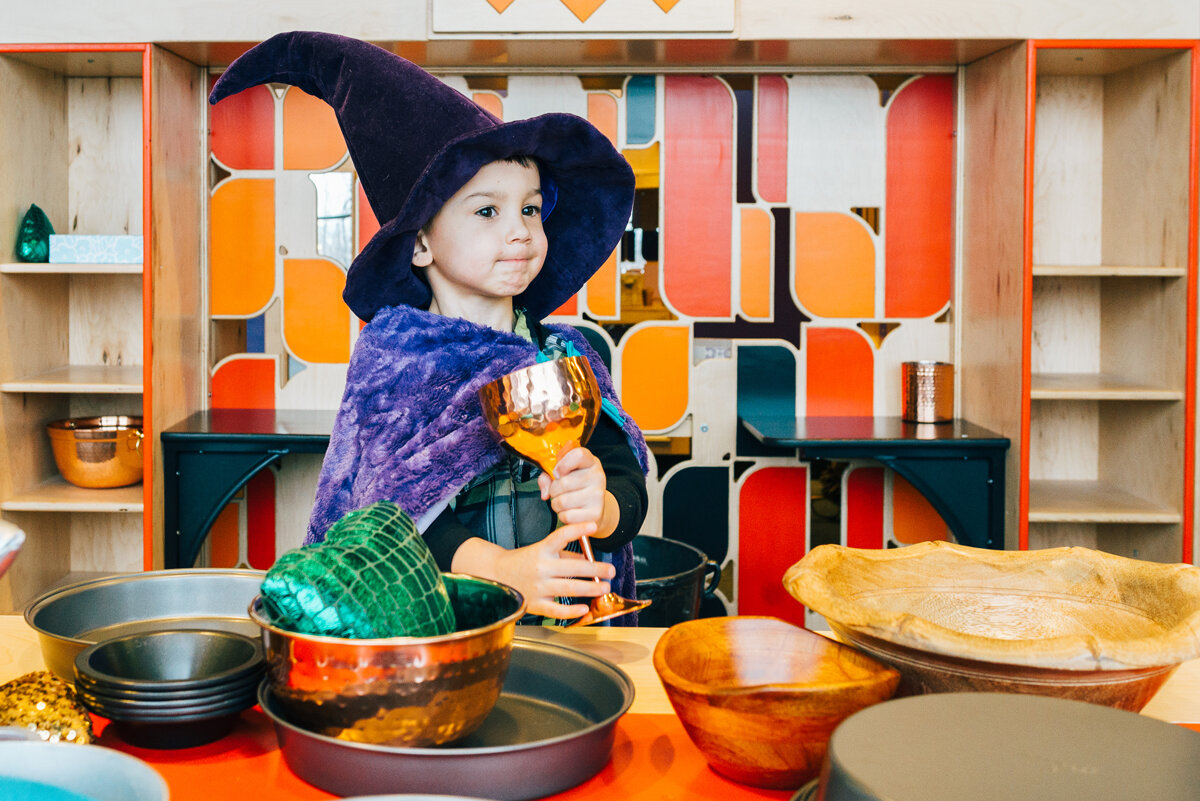Another thing we keep hearing over and over again during the COVID-19 quarantine:
Fake it until you make it.
In trying times, experts encourage us to slap a smile on our face and pretend that things are easier than they are—and sometimes, we might even start believing it.
Lucky for parents and caregivers—our kids are natural pretenders.
Pretend play is a child’s greatest tool. When our little ones engage in imaginary play, there are no limits to what they can be, feel, say, or do. Pretend play allows children to explore different personas, curiosities, ideas, or emotions.
This won’t hurt a bit (at least, we’ll pretend it won’t).
Little ones use role-playing to make sense of scary experiences. Pretending to be a doctor, for example, is a way to explore an experience that can be scary or confusing, like an upcoming doctor’s appointment.
When a child pretends they’re a doctor, they create a setting where they are in control. As they act out each part of the examination—the stethoscope, checking reflexes, looking in ears and a nose—they are reenacting what they are familiar with. They are emotionally preparing themselves for what they don’t understand and what might be scary.
More than words…
…is all you have to remember when engaging in pretend play with your little ones. Think about how easy it is for a child to let 1 thing symbolize another. For example: This water is a magic potion. This stuffy is my baby. The floor is lava.
It may not be obvious, but this kind of pretend play is actually a powerful way for children to build language. Pretend play and language both involve the same underlying ability to represent things symbolically. They’re making associations and building their vocabularies.
Walk a mile in someone else’s shoes (or pretend to).
As grownups are starting to learn (as we create Facetime happy hours and virtual movie watching parties with our friends), pretending can feel... strange. But we’re learning to handle it.
For our little ones, pretend play fosters empathy. When children try out new characters and make up pretend stories, they try out new personas and experiment with social roles. When they play pretend with other children, they begin to consider other people’s feelings and reactions.
Throw play into the mix.
Sadly, a lot of children start to move away from pretend play around age 8. That said, now might be the time to engage the whole family in some pretend play fun—pretend you’re at a restaurant, movie theater, or your favorite hangout while at home, and pay attention to how it feels. And if you’re lucky enough to still have little ones at home in the throes of pretend play, let them lead the way. You never know what you might discover.

